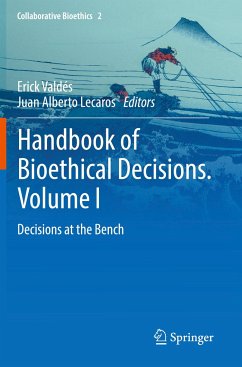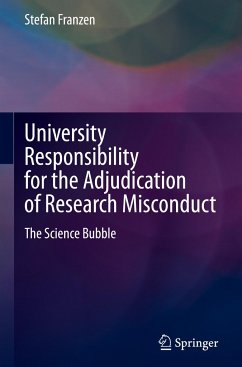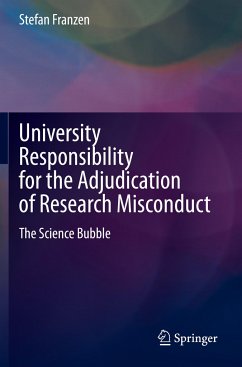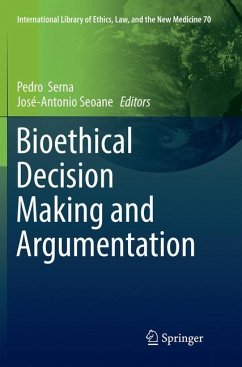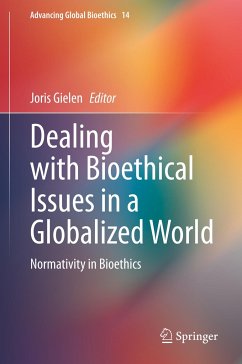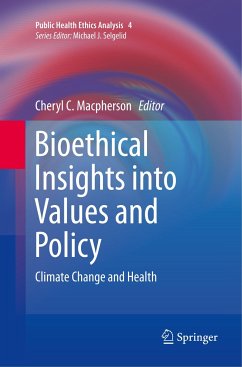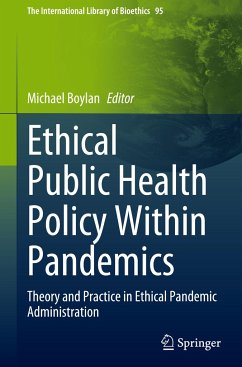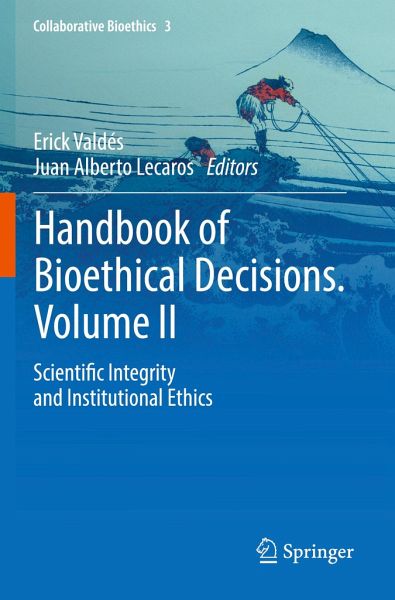
Handbook of Bioethical Decisions. Volume II
Scientific Integrity and Institutional Ethics
Herausgegeben: Valdés, Erick; Lecaros, Juan Alberto
Versandkostenfrei!
Versandfertig in 1-2 Wochen
100,99 €
inkl. MwSt.

PAYBACK Punkte
50 °P sammeln!
The Handbook of Bioethical Decisions Volume II addresses and analyzes the most important ethical concerns and moral quandaries related to scientific integrity and institutional ethics. It counts on two parts, Part One: Research Ethics, which addresses issues related to Scientific Integrity, Research Misconduct and Conducting Ethical Research, and Part Two: Institutional Ethics and Bioethics Committees, which explores Institutional Ethics issues, Ethics and Bioethics Committees' roles and scopes, and Bioethical Issues in Institutional Ethics. Consequently, the Handbook, Vol. II, offers a remark...
The Handbook of Bioethical Decisions Volume II addresses and analyzes the most important ethical concerns and moral quandaries related to scientific integrity and institutional ethics. It counts on two parts, Part One: Research Ethics, which addresses issues related to Scientific Integrity, Research Misconduct and Conducting Ethical Research, and Part Two: Institutional Ethics and Bioethics Committees, which explores Institutional Ethics issues, Ethics and Bioethics Committees' roles and scopes, and Bioethical Issues in Institutional Ethics. Consequently, the Handbook, Vol. II, offers a remarkable collection of works by outstanding international experts on institutional and research ethics, in order for bioethics practitioners to obtain better elements to address key issues related to integrity in research as well as to decision-making processes. In this fashion, this volume is a valuable resource for professionals working on different bioethical and biomedical fields, such as, ethics and bioethics committees, health care institutions, biomedical and pharmacological companies, and academic settings, among others.
Chapter 26 is available open access under a Creative Commons Attribution 4.0 International License via link.springer.com.
Chapter 26 is available open access under a Creative Commons Attribution 4.0 International License via link.springer.com.





